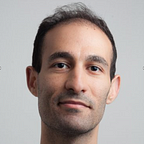Why a Lack of Sleep Makes You Anxious
Some consequences of a bad night’s sleep are obvious — fatigue, difficulty concentrating, and a yearning for bed are just a few. But some other important consequences, such as a weaker drive to be social during the day, are frequently overlooked. Scientists have recently focused their attention on another hidden problem of limited sleep: anxiety.
There is a close relationship between how long people sleep and how they experience the world. The longer people go without sleep, the more distressed they begin to feel. Sleep disturbances are also a common symptom of major mood disorders such as depression. Improving sleep quality is an early target for many approaches to therapy, because when people sleep better, they feel better.
It could be that sadness and worry are simply consequences of feeling tired, but it could also be that there are direct links between sleep and mood regulation systems in the brain. One team of researchers at Berkeley decided to answer this question directly with a study published in 2020.
The researchers asked people to complete tasks after a normal night of sleep and after a second night of total sleep deprivation. They surveyed each person’s levels of anxiety during each session, and recorded their brain activity while they watched videos that made them uncomfortable (e.g. watching a young child cry).
